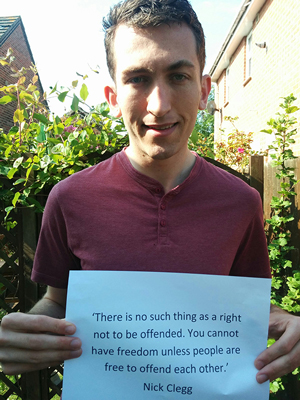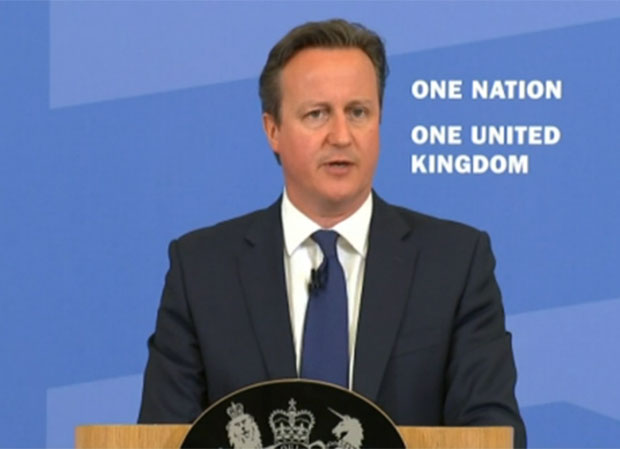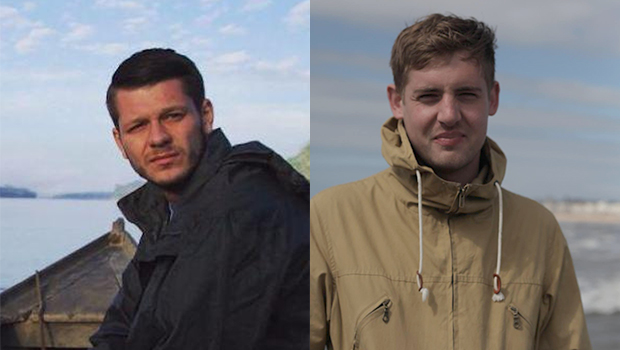1 Sep 2015 | About Index, Campaigns, Press Releases, Turkey, United Kingdom
Wednesday 2 September:
The Foreign and Commonwealth Office issued the following statement:
“We are concerned at the arrest of two British journalists in Diyarbakir on 31 August, who have been charged with assisting a terrorist organisation. The journalists have been given access to a lawyer and were in direct contact with consular officials within 24 hours of their detention.
“Respect for freedom of expression and the right of media to operate without restriction are fundamental in any democratic society. Turkey is a state party to the European Convention on Human Rights and International Covenant on Civil and Political Rights. We would expect the Turkish authorities to uphold the obligations enshrined in those agreements.”
Tuesday 1 September:
Freedom of expression charities have written to UK Foreign Secretary Philip Hammond urging the UK to speak out publicly in defence of freedom of expression following the arrest of two British journalists and an Iraqi translator in Turkey under terror legislation.
The journalists and their fixer were were formally charged by a Turkish court on Monday with ‘aiding a terrorist organisation’. Vice News has described the charges as completely baseless.
The letter from PEN International, English PEN and Index on Censorship highlights the deteriorating situation for media in Turkey and urges Foreign Secretary Philip Hammond to speak out publicly against the arrests.
“Coming shortly after the equally unjust sentencing of Al Jazeera journalists in Egypt, we would note also the worrying increase in the use of terror laws to stifle a free and independent media globally and hope the UK will use its international position to help reverse this disturbing trend,” the groups say in the letter.
The groups have also written to the Council of Europe, of which Turkey and the UK are members, to express their concerns.
A copy of the letter can be found below.
Dear Mr Hammond,
We are writing to you on behalf of Index on Censorship, English PEN and PEN International, charities that campaign for freedom of expression in the UK and globally, to urge the immediate intervention of the British government in the case of three VICE News journalists, including two Britons, who have been charged with terror offences by the Turkish government.
The two British reporters, VICE News journalists Jake Hanrahan and Philip Pendlebury, along with their fixer, Iraqi translator and journalist Mohammed Ismael Rasool, were formally charged by a Turkish court on Monday with ‘aiding a terrorist organisation’. We believe these charges to be baseless.
The three were detained by police with a fourth member of their team as they filmed in the south-east region of Diyarbakir on Thursday. Police interrogated them about alleged links to Islamic State and Kurdish militants.
You will be aware that the Turkish government’s routine use of counter-terrorism charges against journalists is a longstanding cause of concern for international human rights organisations and for the media in Turkey. There are rising fears that Turkey is on the brink of a new media crackdown in the run up to the parliamentary elections: Turkish police conducted a raid on the offices of Koza Koza Ipek Media group today, while an Ankara court has ruled in favour of a general search warrant for the Çankaya district of the Turkish capital (where embassies and foreign missions are based) allowing police to make preventative security searches and detentions for 30 days.
We recognise that Turkey is facing a period of heightened tension in the region. However at such a time it is more important than ever that both domestic and international journalists are allowed to do their vital work without intimidation, reporting on matters of global interest and concern.
A member of the Council of Europe, Turkey is a state party to both the European Convention on Human Rights and the International Covenant on Civil and Political Rights. It is therefore obliged to respect the right to freedom of expression and ensure that journalists are free to gather information without hindrance or threat.
We appreciate the Foreign Office’s consular assistance to the VICE News team and urge you to make a public statement in defence of freedom of expression in Turkey.
Coming shortly after the equally unjust sentencing of Al Jazeera journalists in Egypt, we would note also the worrying increase in the use of terror laws to stifle a free and independent media globally and hope the UK will use its international position to help reverse this disturbing trend.
Yours sincerely,
Jodie Ginsberg
Chief Executive, Index on Censorship
Maureen Freely
President, English PEN
Carles Torner
Executive Director, PEN International
18 Aug 2015 | Academic Freedom, mobile, News, United Kingdom, Youth Board
This is the fourth of a series of posts written by members of Index on Censorship’s youth advisory board.
Members of the board were asked to write a blog discussing one free speech issue in their country. The resulting posts exhibit a range of challenges to freedom of expression globally, from UK crackdowns on speakers in universities, to Indian criminal defamation law, to the South African Film Board’s newly published guidelines.
On 12 February 2015, the Counter-Terrorism and Security Act became law in the UK. If the fact that it is the seventh counter-terrorism bill in 14 years wasn’t enough to demonstrate the creep of governmental control, part five of the new legislation poses a direct and disturbing threat not just to freedom of expression but to knowledge and thought as well.
Part five of the Counter-Terrorism and Security Act places a statutory duty on public authorities to prevent terrorism. Under this remit falls schools and universities; places that used to be woven with the notion of free thought. The directions contained in the statute are unclear and gives universities the right to ban, exclude and prevent discussions that certain officials deem to incite radicalisation.
However, freedom of academic thought or discussion is not even the sole concern. London School of Economics Student Union’s community and welfare officer Aysha said: “Students who go to support services will now not be entitled to confidentiality under the new act if that person is deemed a ‘threat’, which is incredibly racialised.” In short, there is the potential that students would be unable to voice personal concerns, or the need for support, due to stereotypes that this act will enforce.
Jade Jackman, UK
Related:
• Harsh Ghildiyal: Defamation is not a crime
• Tom Carter: No-platforming Nigel
• Matthew Brown: Spying on NGOs a step too far
• About the Index on Censorship youth advisory board
• Facebook discussion: no-platforming of speakers at universities
17 Aug 2015 | mobile, News, United Kingdom, Youth Board
The new cohort of the Index on Censorship youth advisory board was launched last month. The board is already participating in discussions on Facebook.
Members of the board were asked to write a blog discussing one free speech issue in their country. The resulting posts exhibit a range of challenges to freedom of expression globally, from UK crackdowns on speakers in universities, to Indian criminal defamation law, to the South African Film Board’s newly published guidelines.
In the first of a series of posts, youth board member Matthew Brown explores mass surveillance in the UK.

Matthew Brown is a member of the Index youth advisory board. Learn more.
I don’t often begin writing by quoting Herman Goering but on one account he was worryingly accurate. Goering stated that: “The people can always be brought to the bidding of the leaders. All you have to do is tell them they are being attacked and denounce the pacifists for lack of patriotism and exposing the country to danger. It works the same way in any country.”
Increasing levels of surveillance are often justified as essential in protecting us from imminent attack but the recent revelation that GCHQ spied illegally on Amnesty International, an organisation relying upon the secrecy of their communications with human rights defenders, demonstrates the extent to which state surveillance methods are now out of control.
It is easy to scorn states known for their dictatorial regimes but our society has only progressed to its current position through holding the state to account. If we fail to continue to do so, then the slide towards a world in which freedom of expression is restricted at any given moment the government decides appropriate is inevitable. The interception of the correspondence of NGOs raises the worrying question of how these organisations can continue their crucial work if their confidential correspondence is likely to end up out of their hands.
Matthew Brown, UK
Related:
• Tom Carter: No-platforming Nigel
• About the Index on Censorship youth advisory board
• Facebook discussion: no-platforming of speakers at universities
21 Jul 2015 | Campaigns, mobile, Statements, United Kingdom

Free speech is a fundamental British value, UK Prime Minister David Cameron insisted on Monday in a widely trailed speech outlining how his government planned to tackle “the struggle of our generation”: Islamic extremism.
Cameron made some of the right noises. He talked of the need for voices countering the extremist narrative to be heard more loudly: to be featured more often in newsprint, or given more airtime in broadcast. More speech is a good thing. One of the reasons why organisations like Index champion free speech as a fundamental good is a belief that more speech is the best counter to speech you dislike or with which you disagree, and that allowing those plethora of voices and ideas to be heard is what allows societies to advance. As author Elif Shafak wrote in a recent article for Index magazine: “The response to a book is another book. The response to a cartoon is another cartoon. Words need to be answered with words.”
Sadly, it became clear throughout the speech – as it has become clear through successive legislation in recent years – that Cameron and his government are not really committed to free speech. No, they are committed to ‘good’ speech, to speech that the government and its supporters decide is palatable. They are committed to funding and advocating the ideas and narratives of which they approve (“If you’re interested in reform; if you want to challenge the extremists in our midst; if you want to build an alternative narrative or if you just want to help protect your kids – we are with you and we will back you – with practical help, with funding, with campaigns, with protection and with political representation”) and banning those they don’t. His speech on Monday was, as ever, short on details in relation to the practicalities, but Cameron once again reiterated the notion that the government wants to introduce further curbs on ‘non-violent’ speech, in other words speech that falls short of inciting violence.
That is not what a commitment to free speech means. Free speech – the kind that allows democracies to flourish – allows people to espouse views that others find offensive, insulting, and even complete anathema to your way of life. And it allows other people to dispute those views. Free speech protections are what allows both the holocaust denier the right to spout nonsense about the Nazis and the wider population to refute them.
But Cameron does not share that commitment to free speech. The kind of free speech protection the Prime Minister envisages permits some as yet undefined version of acceptable speech but seeks to outlaw whatever this government deems beyond the pale. And herein lies the danger. Any attempt to proscribe ideas, or the voicing of ideas, beyond direct incitements to violence undermines the very principle of free speech – and ultimately undermines its benefits for civil society as a whole.
You only have to look at how widely drawn Cameron has to make the net to capture the ‘non-violent extremist’ narrative to understand how easily any group who challenges the government, or the prevailing majority view, might be drawn into his net. This is not the society we want to live in, where public speakers might have to register two weeks in advance and be vetted before being allowed on a podium, as was indicated in an earlier version of this speech trailed before the election. As former attorney general Dominic Grieve said recently: “When in doubt you should always go for the free speech option.” Grieve recently told Index: “In a free society people do have a right to be insulting about other people’s beliefs…I think that the free society requires that there should be should be the possibility of doing it.” This belief is at the core of any democracy and is worth fighting for. Something that David Cameron conveniently seems to be willing to relinquish.
Even more worryingly, Cameron goes even further by suggesting that not only may we be punished for this ill-defined non-violent speech, but we might also be required to demonstrate publicly our lack of support for such ideology. “We must demand that people also condemn the wild conspiracy theories, the anti-Semitism, and the sectarianism too,” the Prime Minister declared. Quite how this thought-police style demands will be enforced in practice is difficult to imagine – perhaps Katie Hopkins might be forced to make public apologies in areas of their country known for high levels of immigration for failing to show the correct British levels of ‘tolerance’ when she wrote about gunships and migrant boats?
We need to champion free speech
Some people seem to view free speech as a “nice-to-have” add-on, a mere luxury principle tacked on the end of other more basic rights. But respecting free expression is a fundamental tenet of democracy. It is qualified by other rights, but assessing those balances is something that should be done by a court of law not by an ever-creeping extension of government power to proscribe people and views it does not like. Cameron laid this blatant disregard for democracy bare last month when he said: “For too long, we have been a passively tolerant society, saying to our citizens: as long as you obey the law, we will leave you alone.”
As soon as you have to fear not just breaking the law, but state interference for ‘non-crimes’ as well, you no longer have a democracy. And with no test for what words might put you in the category of law-abiding undesirables, how do we know when the ‘offence-hunters’ – sniffing out anyone who seems not to defend sufficiently ‘British values’ – might come for any one of us?
David Cameron raises the fearful spectre of an intolerant, violent Islamist state that wants to bring an end to the freedoms we cherish. If we are to succeed in protecting those freedoms, then we cannot let the government undermine the very values he says he is defending. If we let that happen, we will have already lost. Instead we need to defend the rights of everyone – including the extremists – to voice opinions we find abhorrent, or risk finding our ability to say we disagree with those views is lost too.
This article was posted on 21 July 2015 at indexoncensorship.org



